Beiträge
-
 Ethnographie als Werkzeug (in) der Rechtswissenschaft
Ethnographie als Werkzeug (in) der RechtswissenschaftRechtswissenschaftliche Arbeiten entstehen in der Regel am Schreibtisch, Gespräche sind telefonisch möglich und selbst Archive meist online zugänglich, die meisten Arbeiten basieren auf wissenschaftlicher Literatur. Doch welche Erkenntnisse, Perspektiven und Forschungsgegenstände entgehen rechtswissenschaftlicher Forschung, für die Forschende ihren Schreibtisch nicht verlassen? Und wie lassen sich die Lücken füllen?
-
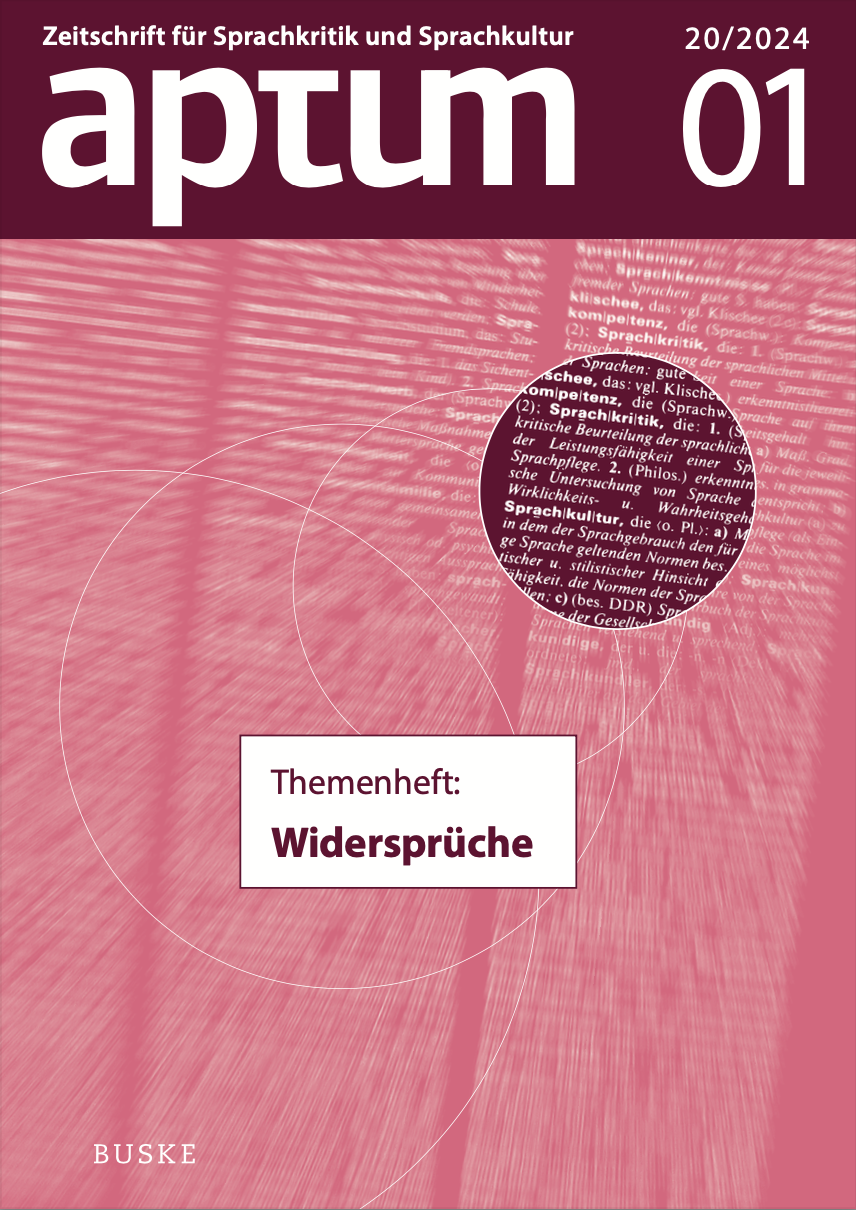 „Man kann sich nicht gleichzeitig für Feminismus und Freiheit einsetzen.“ Zur diskursgrammatischen Konstitution von Antonymie
„Man kann sich nicht gleichzeitig für Feminismus und Freiheit einsetzen.“ Zur diskursgrammatischen Konstitution von Antonymie
-
 Diskurs ist Widerspruch
Diskurs ist Widerspruchaptum Themenheft Widersprüche
-
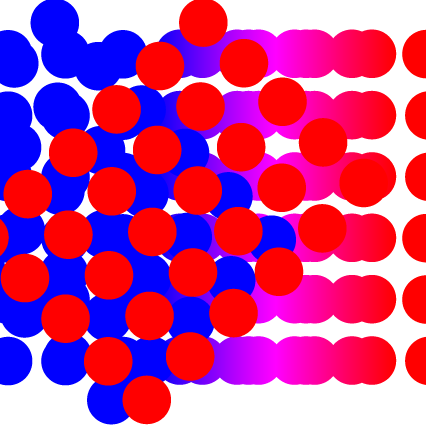 Als Wien zum Zentrum des tschechoslowakischen Dissens‘ wurde
Als Wien zum Zentrum des tschechoslowakischen Dissens‘ wurde
-
 Rezension: Nationsbildung und Außenpolitik im Osten Europas
Rezension: Nationsbildung und Außenpolitik im Osten EuropasRezension des Sammelbandes Nationsbildung und Außenpolitik im Osten Europas. Nationsbildungsprozesse, Konstruktionen nationaler Identität und außenpolitische Positionierungen im 20. und 21. Jahrhundert (Hrsg. Bianka Pietrow-Ennker).
-
 Queer-Gottesdienste – Entwicklungstendenzen und Generationsunterschiede
Queer-Gottesdienste – Entwicklungstendenzen und Generationsunterschiede
-
 Nachhaltig nicht-nachhaltig. Rechte indigener Gruppen im Freihandelsabkommen EU-Mercosur
Nachhaltig nicht-nachhaltig. Rechte indigener Gruppen im Freihandelsabkommen EU-MercosurIm Rahmen der Energiewende wächst der europäische Bedarf nach Rohstoffen. Zahlreiche der für die Energiewende benötigten Rohstoffe befinden sich auf den Gebieten indigener Völker, was häufig zu Konflikten führt. Vor diesem Hintergrund ist es erstaunlich, dass das geplante Abkommen zwischen der EU und den Mercosur-Staaten keine Vorschriften bezüglich Beteiligung und Schutz indigener Völker beinhaltet. Ein Verweis auf solche Vorschriften, insbesondere aus der ILO-Konvention 169, wäre völkerrechtlich geboten und trüge dazu bei, die Konflikte und Widersprüche des Nachhaltigkeitsbegriffs aushandelbar zu machen.
-
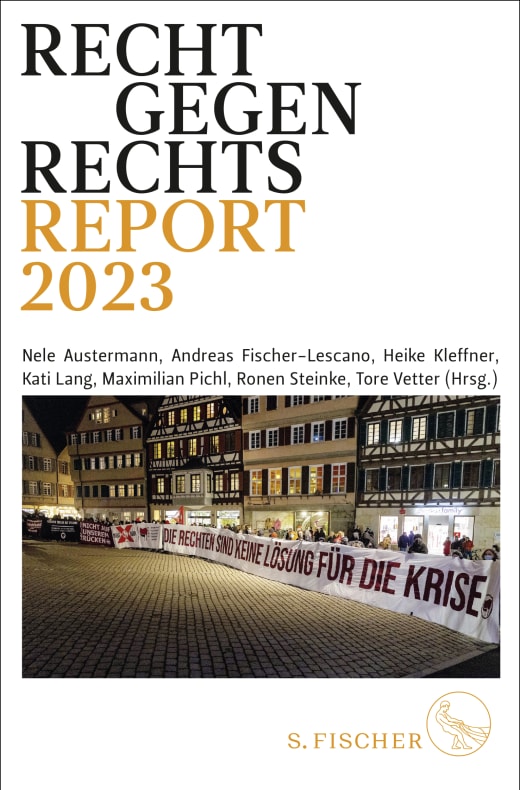 Babycaust? Keine Volksverhetzung! Die deutsche Justiz versagt bei der Bekämpfung von Holocaustverharmlosung und Aufstachelung zum Hass
Babycaust? Keine Volksverhetzung! Die deutsche Justiz versagt bei der Bekämpfung von Holocaustverharmlosung und Aufstachelung zum Hass
-
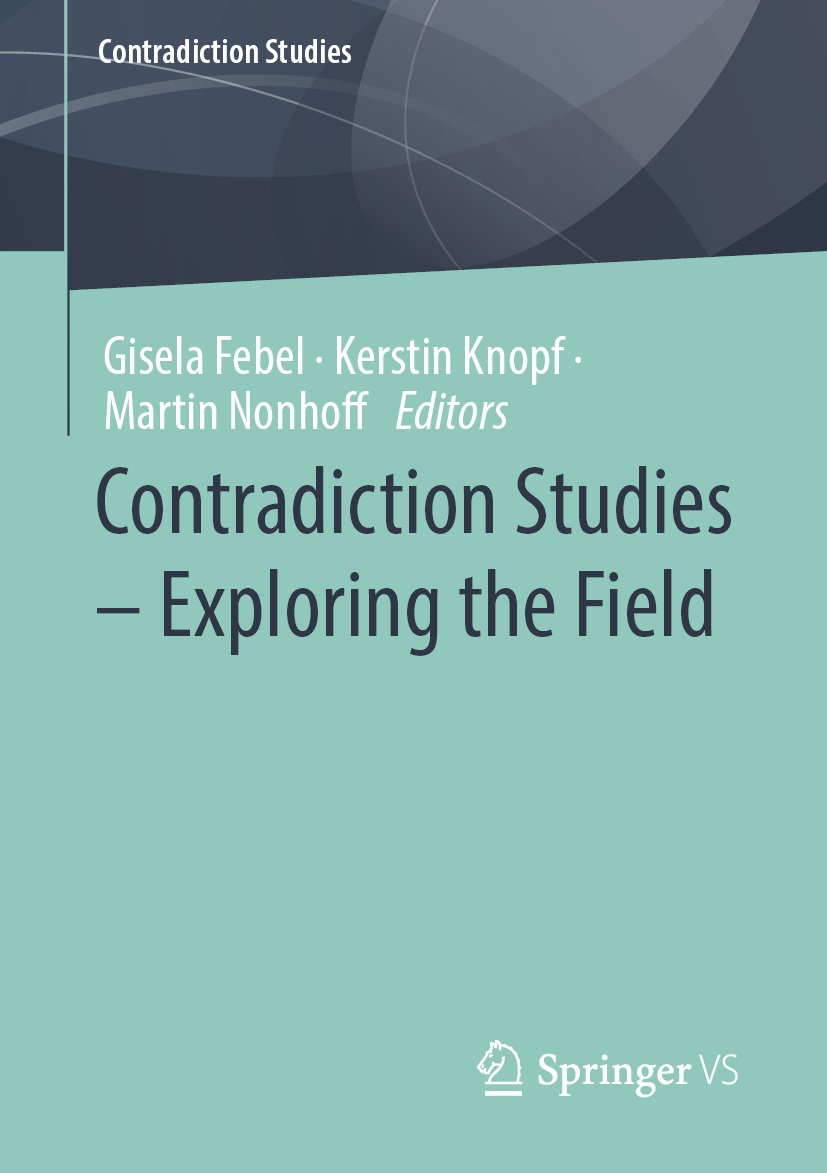 Contradiction Studies – Exploring the Field. An Introduction
Contradiction Studies – Exploring the Field. An IntroductionSince antiquity in Greece, the Law of Non-Contradiction (LNC) is considered to be the foundation of all philosophy. As Aristotle maintains in Metaphysics, “the same attribute cannot at the same time belong and not belong to the same thing and in the same respect” (1005b, 19–23).
-
 Die Region Bremen. Herausforderungen der regionalen Verflechtung der Stadt Bremen mit ihrem niedersächsischen Umland
Die Region Bremen. Herausforderungen der regionalen Verflechtung der Stadt Bremen mit ihrem niedersächsischen Umland
-
 Agency and Incentives of Diasporic Political Influencers on Facebook Malawi
Agency and Incentives of Diasporic Political Influencers on Facebook MalawiThis article examines the agency and incentives that drive the activism of diasporic political influencers on “Facebook Malawi,” an online imagined political community. In their seminal work on “social media dissidents” and “social media self-made activists” in the Global South, Matsilele and Sharra demonstrate that social media activists engage with different strategies to initiate movements, mobilize citizens, and create their brands in strong opposition to authoritarian regimes which repositions them as freedom fighters in the eyes of the masses and enemies of the state. Correspondingly, we frame diasporic political influencers as actors aided by digital technologies who engage in “long-distance nationalism” on Facebook against authoritarianism in the homeland. We deploy a qualitative mixed methods approach to analyze Facebook data of two diasporic political influencers, Onjezani Kenani and Manes Winnie Hale, who gave informed consent to use their Facebook data generated in 2018 and 2021, a period preceding and following the 2019 Malawi tripartite elections. A thematic analysis of 250 Facebook posts and interview data with the two influencers illustrates how they exercise their agency in their quest for a vision of a better Malawi while navigating a complex and ambivalent web of online and offline threats, incentives, and interests. Implicated in the political communication and mobilization of the two are different strategies that include verbal inventiveness, trolling, and exposing. The article also shows how the concept of long-distance nationalism needs to be adapted in studying diasporic political influencers.
-
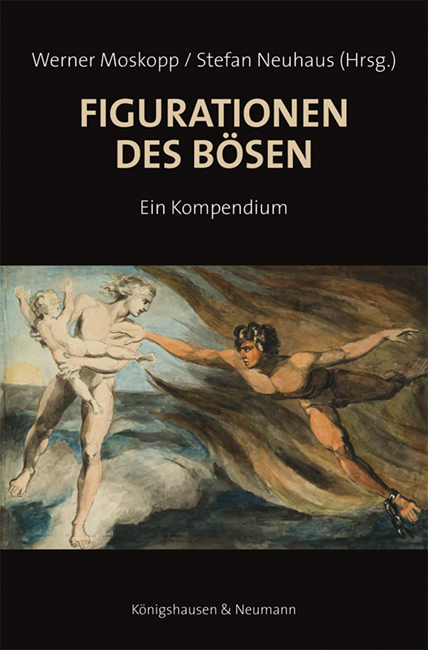 Hagen von Tronje: Vom Antagonist zum Bösewicht zum Antiheld. Überlegungen zur diachronen Entwicklung und Rezeption einer Antagonistenfigur
Hagen von Tronje: Vom Antagonist zum Bösewicht zum Antiheld. Überlegungen zur diachronen Entwicklung und Rezeption einer Antagonistenfigur
-
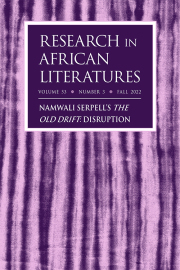 State of the Planet. Homi Bhabha and Namwali Serpell in Conversation
State of the Planet. Homi Bhabha and Namwali Serpell in ConversationAfter explaining the rationale for bringing the author of The Old Drift, Namwali Serpell, and critical theorist Homi Bhabha into conversation, this interview with both of them explores some of the key themes of Serpell’s novel in relation to its wider geopolitical and historical context. Beginning with how we can understand the state of the planet in the present historical moment, the discussion expands to explore the broad context of more themes in the novel, which includes the place of gender and sexual politics, a global pandemic in a time of national and financial closures, cosmopolitanism, the space race and reverberations of the Cold War in the present, and the continued relevance, if any, of postcolonial theory, technology, revolution, and futurity.
-
 Zeitliche Vielfalt – Erscheinungsformen von Zeit und die Aufgabe der Philosophie
Zeitliche Vielfalt – Erscheinungsformen von Zeit und die Aufgabe der PhilosophieTagungsband zum Symposium Zeit · Geist · Gehirn. Neurowissenschaft und Zeiterleben 2021.
-
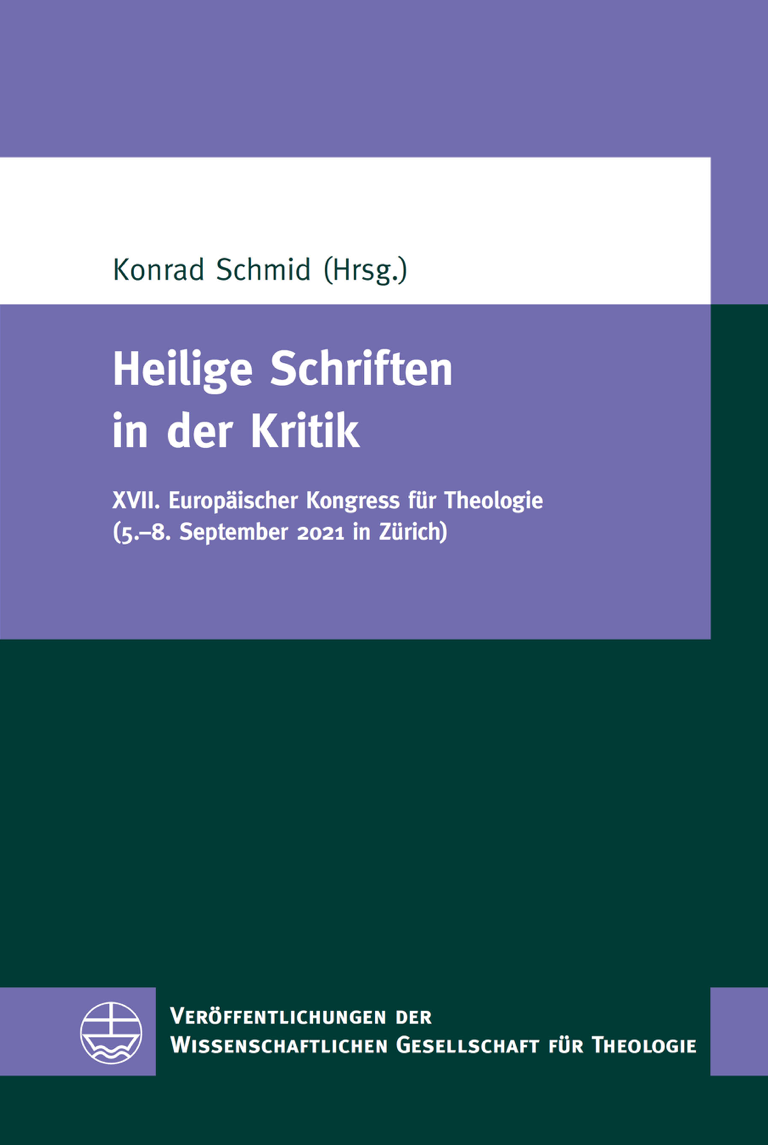 Aristokratie der Buchreligionen? Heilige Schriften aus religionswissenschaftlicher Perspektive
Aristokratie der Buchreligionen? Heilige Schriften aus religionswissenschaftlicher Perspektive
-
 Widerspruchsresponsive Nachhaltigkeit
Widerspruchsresponsive NachhaltigkeitVerfassungsblogbeitrag: Das Freihandelsabkommen der EU mit Neuseeland verpasst die Etablierung eines kritischen Nachhaltigkeitsbegriffs.
-
 Multidirektionale Lexik in der Diskursgeschichte des 20. Jahrhunderts
Multidirektionale Lexik in der Diskursgeschichte des 20. Jahrhunderts
-
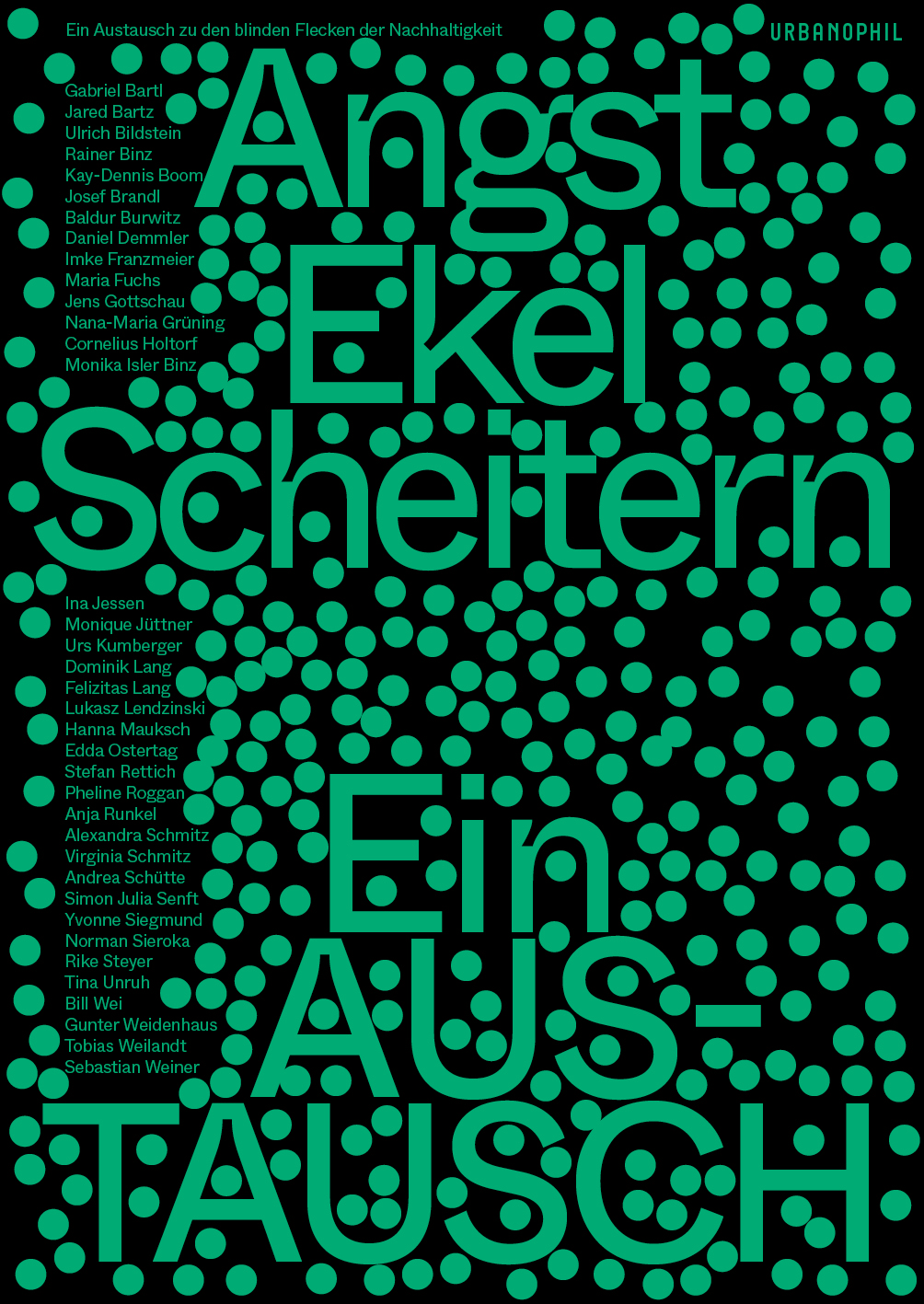 Ritual und Experiment – Versuch einer Annäherung an die Natur
Ritual und Experiment – Versuch einer Annäherung an die NaturDas Verhältnis von Mensch und Natur unterliegt einem ständigen Wandel. Galt die Natur lange als bedrohlich und fremd, entwickelte sich im 16. Jahrhundert die Idee vom Menschen im Einklang mit der Natur. Eine erneute tiefgreifende Veränderung dieses Verhältnisses geht mit der Industrialisierung und rapiden Urbanisierung seit dem 19. Jahrhundert einher. Die Mensch-Natur-Beziehungen geraten aus dem Gleichgewicht und gefährden das Überleben vieler Spezies, auch die des Menschen, auf diesem Planeten. Die seit den 1960er Jahren anhaltende Umwelt-debatte konnte daran bis heute nur bedingt etwas verändern. Vielmehr scheint eine anhaltende Unfähigkeit – ein „blind spot“ – zu bestehen, sozio-ökologische Beziehungen zu unserem Lebensraum (wieder) herzustellen und zu unterhalten. Es stellt sich die dringliche Frage, wie wir uns wieder an die Natur annähern können und welche Strategien dafür hilfreich erscheinen.
-
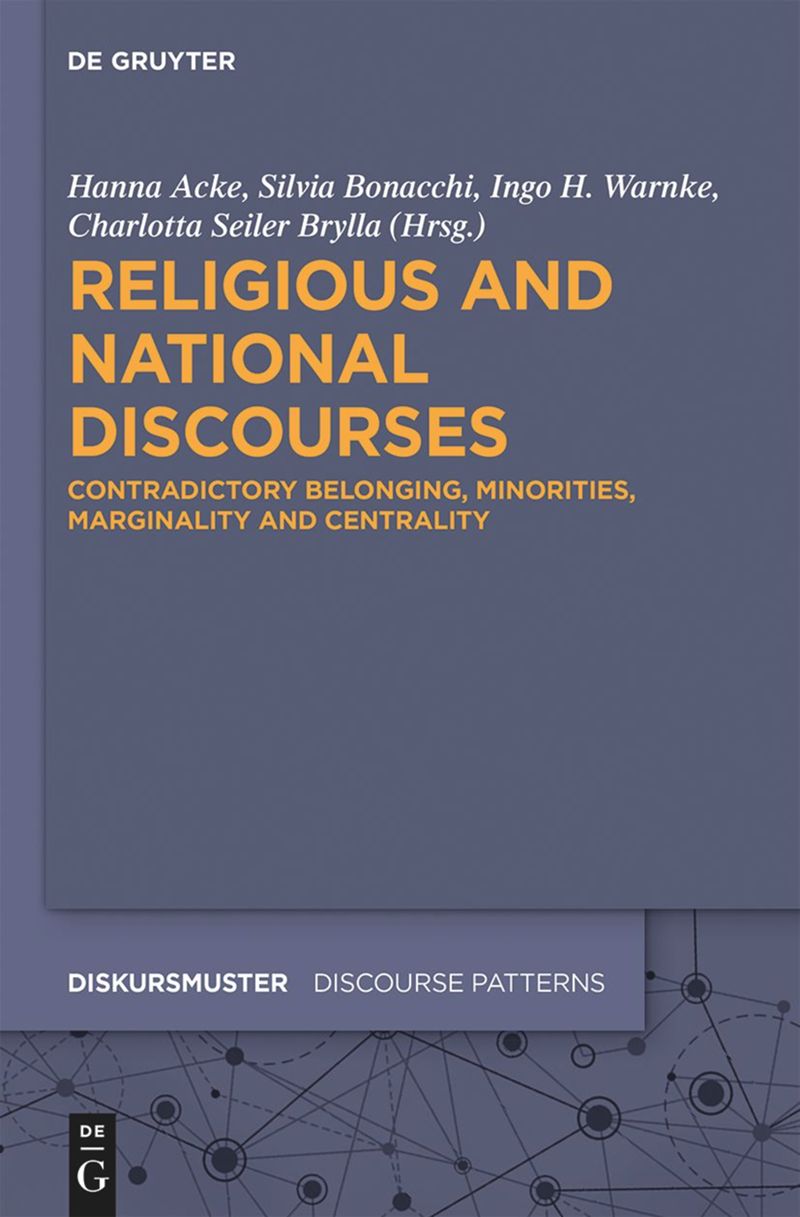 Minorities and Majorities, Marginality and Centrality. An Introduction
Minorities and Majorities, Marginality and Centrality. An Introduction
-
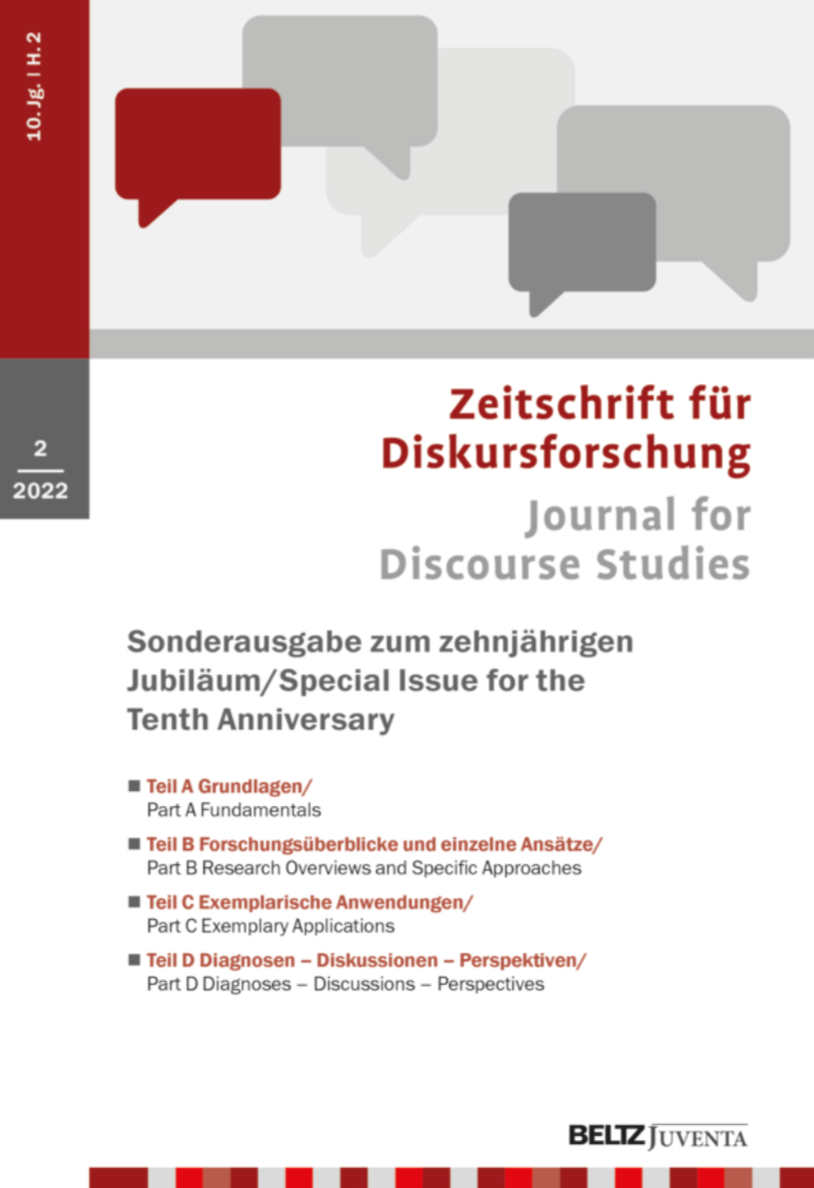 Mythos Zuhören – Bemerkungen zur Diskursphänomenologie gerichteter Aufmerksamkeit
Mythos Zuhören – Bemerkungen zur Diskursphänomenologie gerichteter AufmerksamkeitAusgehend von der Omnipräsenz beschönigender Rede über Zuhören fragt der Essay nach dem Beziehungsgeflecht von Zuhören und Diskurs. Einem verbreiteten Mythos, in dem Zuhören isoliert als replikative Handlung verstanden wird und Unwägbarkeiten des Zuhörens systematisch überdeckt sind, wird die Annahme gegenübergestellt, dass Zuhören Sprache im Widerspruch ist und als solche konstitutiv für Diskurse und vice versa. Gefragt wird nach Möglichkeiten einer Soziolinguistik des Zuhörens und insbesondere nach einer konzeptionellen Einordnung des Zuhörens im Spannungsfeld von Positivität der Rede und Intentionalität des Zuhörens. Ich spreche von Diskursphänomenologie, ohne zu übersehen, dass damit eine auch wissenschaftshistorische Gegenüberstellung von Diskursanalyse und Phänomenologie aufgebrochen wird.